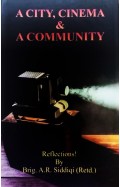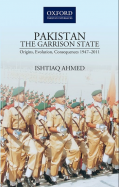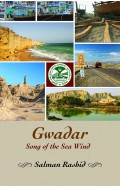- Home
- Education and Reference
- Science
- Taming Rivers - Recollections of a Civil Engineer During the British Raj
Taming Rivers - Recollections of a Civil Engineer During the British Raj
By: Khan Bahadur Abdur Rahman Khan
-
Rs 1,111.50
- Rs 1,235.00
- 10%
You save Rs 123.50.
Due to constant currency fluctuation, prices are subject to change with or without notice.
These are the memoirs of Khan Bahadur Abdur Rahman Khan (1891-1980), a civil engineer in the North West Frontier Province (NWFP; now Khyber Pakhtunkhwa), during the British Indian period. A member of the Imperial Service of Royal Engineers, his memoirs provide a riveting account of the turbulent historical period in the NWFP, which saw the decline of the British Raj from its zenith, under Queen Victoria, to the exit of the British, the Partition of India, and the creation of Pakistan. His narrative records the often-violent political struggle for independence, the gradual decline of the Raj and its institutions, the consequences of the shifting power structures under the various reforms, and the tussle between the Indian National Congress and the Muslim League to win over the loyalties of the Pathans. His narrative is rich with anecdotes and insights about events and the people who shaped the course of this history such as Sir George Cunningham, Sir Olaf Caroe, Sir Ambrose Dundas, Allama Iqbal, Dr Khan Sahib, Ghaffar Khan, and Khan Abdul Qayum Khan. As a young engineer he was instrumental in saving the city of Dera Ismail Khan from being swept away by the raging waters of the Indus River in floods and he undertook long and arduous treks in Waziristan and Balochistan escorted by troops lead by British officers to survey and develop dams and irrigation projects. He made a significant contribution to the irrigation development of the NWFP and Balochistan. After Independence he was appointed a member of the delegation to negotiate the Indus Water Dispute with India. Besides providing an intimate political and social history of the changing times, hitherto not available in contemporary works, the author is widely recognized as an eminent engineer and his historical perspective on the water resources development of arid regions is a useful reference for those interested in working on these issues in Pakistan.
These are the memoirs of Khan Bahadur Abdur Rahman Khan (1891-1980), a civil engineer in the North West Frontier Province (NWFP; now Khyber Pakhtunkhwa), during the British Indian period. A member of the Imperial Service of Royal Engineers, his memoirs provide a riveting account of the turbulent historical period in the NWFP, which saw the decline of the British Raj from its zenith, under Queen Victoria, to the exit of the British, the Partition of India, and the creation of Pakistan. His narrative records the often-violent political struggle for independence, the gradual decline of the Raj and its institutions, the consequences of the shifting power structures under the various reforms, and the tussle between the Indian National Congress and the Muslim League to win over the loyalties of the Pathans. His narrative is rich with anecdotes and insights about events and the people who shaped the course of this history such as Sir George Cunningham, Sir Olaf Caroe, Sir Ambrose Dundas, Allama Iqbal, Dr Khan Sahib, Ghaffar Khan, and Khan Abdul Qayum Khan. As a young engineer he was instrumental in saving the city of Dera Ismail Khan from being swept away by the raging waters of the Indus River in floods and he undertook long and arduous treks in Waziristan and Balochistan escorted by troops lead by British officers to survey and develop dams and irrigation projects. He made a significant contribution to the irrigation development of the NWFP and Balochistan. After Independence he was appointed a member of the delegation to negotiate the Indus Water Dispute with India. Besides providing an intimate political and social history of the changing times, hitherto not available in contemporary works, the author is widely recognized as an eminent engineer and his historical perspective on the water resources development of arid regions is a useful reference for those interested in working on these issues in Pakistan.
Taming Rivers - Recollections of a Civil Engineer During the British Raj
By: Khan Bahadur Abdur Rahman Khan
Rs 1,111.50 Rs 1,235.00 Ex Tax :Rs 1,111.50
Zubin Mehta: A Musical Journey (An Authorized Biography)
By: VOID - Bakhtiar K. Dadabhoy
Rs 892.50 Rs 1,050.00 Ex Tax :Rs 892.50
Pakistan The Garrison State: Origins, Evolution, Consequences (1947-2011)
By: Ishtiaq Ahmad
Rs 994.50 Rs 1,105.00 Ex Tax :Rs 994.50
A History of the Baloch and Balochistan
By: Mir Naseer Khan Ahmedzai
Rs 1,795.50 Rs 1,995.00 Ex Tax :Rs 1,795.50
Is Pluto a Planet?: A Historical Journey through the Solar System
By: David A. Weintraub
Rs 6,115.75 Rs 7,195.00 Ex Tax :Rs 6,115.75
Beyond UFOs: The Search for Extraterrestrial Life and Its Astonishing Implications for Our Future
By: Jeffrey Bennett
Rs 4,797.50 Rs 9,595.00 Ex Tax :Rs 4,797.50
The Islamist Why I Became an Islamic Fundamentalist What I Saw Inside and Why I Left
By: Ed Husain
Rs 510.00 Rs 600.00 Ex Tax :Rs 510.00
The Demon Haunted World Science As A Candle In The Dark
By: Carl Sagan
Rs 3,595.50 Rs 3,995.00 Ex Tax :Rs 3,595.50
Pakistan The Garrison State: Origins, Evolution, Consequences (1947-2011)
By: Ishtiaq Ahmad
Rs 994.50 Rs 1,105.00 Ex Tax :Rs 994.50
A History of the Baloch and Balochistan
By: Mir Naseer Khan Ahmedzai
Rs 1,795.50 Rs 1,995.00 Ex Tax :Rs 1,795.50
Stomp!: Ready-to-Read Ready-to-Go!
By: Stephanie Calmenson
Rs 1,345.50 Rs 1,495.00 Ex Tax :Rs 1,345.50
The Secret Network of Nature: The Delicate Balance of All Living Things
By: Peter Wohlleben
Rs 2,515.50 Rs 2,795.00 Ex Tax :Rs 2,515.50
Zubin Mehta: A Musical Journey (An Authorized Biography)
By: VOID - Bakhtiar K. Dadabhoy
Rs 892.50 Rs 1,050.00 Ex Tax :Rs 892.50
Taming Rivers - Recollections of a Civil Engineer During the British Raj
By: Khan Bahadur Abdur Rahman Khan
Rs 1,111.50 Rs 1,235.00 Ex Tax :Rs 1,111.50
Pakistan The Garrison State: Origins, Evolution, Consequences (1947-2011)
By: Ishtiaq Ahmad
Rs 994.50 Rs 1,105.00 Ex Tax :Rs 994.50
A History of the Baloch and Balochistan
By: Mir Naseer Khan Ahmedzai
Rs 1,795.50 Rs 1,995.00 Ex Tax :Rs 1,795.50












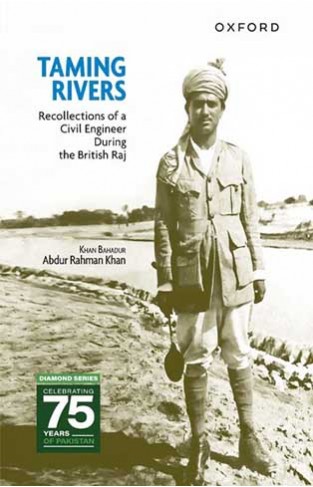
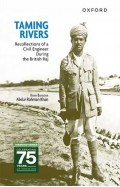
-120x187.jpg?q6)





